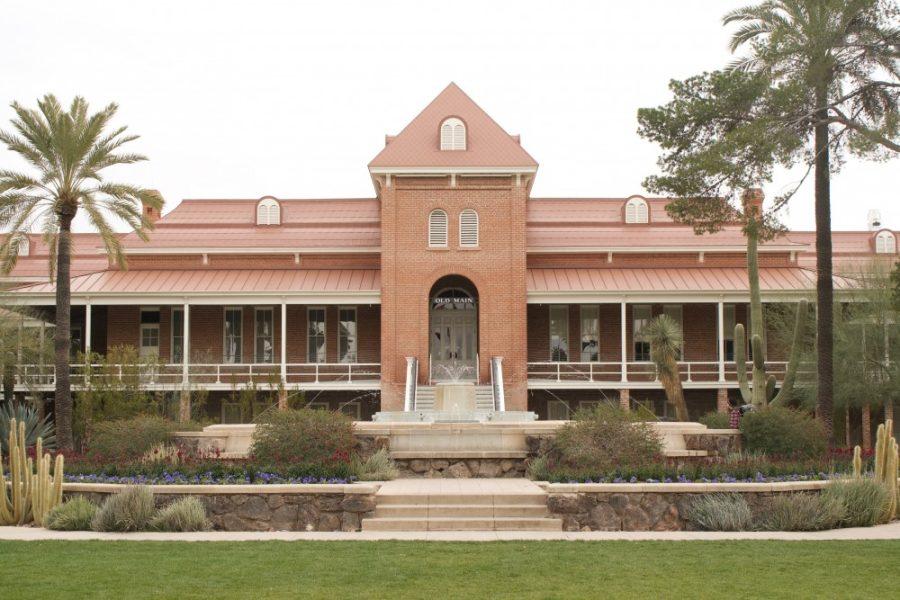Last December, the School of Theatre, Film and Television at the University of Arizona received a letter from acting students concerned about diversity in the school’s theater program.
The letter was sent by a collective of students who referred to themselves as “Actors of Color and LGBTQIA Identity” and it included a list of demands the students wanted the theater program to adhere to.
These demands included creating a board made up of students of color and faculty members to discuss student concerns and broaden the opportunities the school provides.
RELATED: Ph.D. student strings together modern American guitar history
Arielle Avalos, who graduated from UA last semester, said she was inspired to write the letter with the help of other actors.
“The inspiration came from the underrepresentation and the lack of advocacy from our counterparts of students and staff who we bestowed trust that things would change, and our voice would be heard,” Avalos said.
Avalos said she intended for the letter to instill change in the program for future students.
“I hope that the program will immediately rollout an action plan…That they really invest themselves into changing their notion of what theater is and truly care about what theater can and will do,” Avalos said.
The letter suggested the theater program “reassess their course offerings and the lack of diversity of their academic materials.” Avalos also proposed in the letter that professors, faculty and board members undergo racial, gender and LGBTQ+ sensitivity training.
Deanna Fitzgerald, interim co-director of the School of Theatre, Film and Television, said she reached out to the students immediately after receiving the letter to address their concerns and discuss ways to move forward.
“We met and we agreed on some action items right away,” Fitzgerald said. “It (the letter) came as a surprise and we wanted to react quickly. Diversity in our field is a national conversation and to know that students felt excluded was heartbreaking to us.”
Fitzgerald said one of the topics discussed was the students’ concern regarding the theater program’s representation within the College of Fine Arts Committee for Diversity & Inclusion.
The School of Theatre, Film and Television was represented in the committee by a faculty member from the film and television side of the school. Fitzgerald said this may have made theater students feel that their program was not fully involved in the committee.
RELATED: ‘Railed Out Art Show’ benefits horse rescue
“They (the theater students) specifically identified professor Jessica Maerz as somebody that was responsive to their needs and they requested that she be invited to the committee,” Fitzgerald said.
Fitzgerald said Maerz accepted the invitation and is now a part of the diversity committee, as well as two theater students and musical theater professor Christie Kerr.
Lexi George, a senior at UA majoring in theater arts and psychology, was one of the students who became active with the committee. George said she has been involved in the theater program since 2016 and she was also one of the students who helped draft the letter.
“My entire undergraduate experience has been dedicated to helping the arts diversify,” George said. “Representation on stage and screen is one of the easiest ways to communicate and spark change with the masses.”
Dean of UA’s College of Fine Arts and Vice President for the Arts, Andrew Schulz, said he started the committee the theater students are now a part of last fall when he took on the role of the school’s dean.
“It’s grown over time and because things have expanded so dramatically, we’ve created subcommittees,” Schulz said. “There is a range of ways of thinking about this, so I thought ‘Let’s divide and conquer.’”
The three subcommittees focus on matters such as reviewing and re-designing curriculum, recruiting and retaining a diverse student body, diversifying programming and highlighting diversity and inclusion events, Schulz explained.
Fitzgerald said other changes have come to the school, such as a new student caucus which met for the first time in February to discuss diversity and inclusivity in the theater program. The students involved use the caucus to discuss issues they think are important and share those thoughts with Fitzgerald following each meeting.
“We also agreed that I would set aside specific times for students to meet and talk with me about whatever is on their mind,” Fitzgerald said. “The conversations have been really productive. It’s been very positive.”
Students also requested an anonymous way to reach out to faculty in the school, which Fitzgerald said has resulted in a Google form that allows students to privately give feedback and express any concerns they have. Those responses get shared with faculty, who then work to fix issues students bring up, Fitzgerald said.
Fitzgerald said that next week a UA Diversity and Inclusion workshop about unconscious bias in classroom settings will be brought to a theater faculty meeting in response to the student letter.
“In addition, a lot of our faculty have done Safe Zone and Ally Development training,” Fitzgerald said. “We have a pretty large LGBTQ population within theater in general, so it matters to us that they have somewhere to go.”
Fitzgerald said several theater faculty members have also recently expressed intentions to add preferred pronoun usage into their syllabuses to create a more inclusive environment for students.
Another issue addressed in the letter by Avalos and her classmates that the school’s faculty responded to was the diversity of content taught in their courses.
“Now we understand that some of the students feel excluded by the materials in class,” Fitzgerald said. “The faculty have been really eager and active in looking at the scripts students are reading.”
Fitzgerald said several professors are changing, or plan to change by next semester, the play selections in their course and a theater faculty member plans to increase the amount of works by female playwrights taught in theater history courses through the national One Play at a Time initiative.
Follow Jesse Tellez on Twitter









